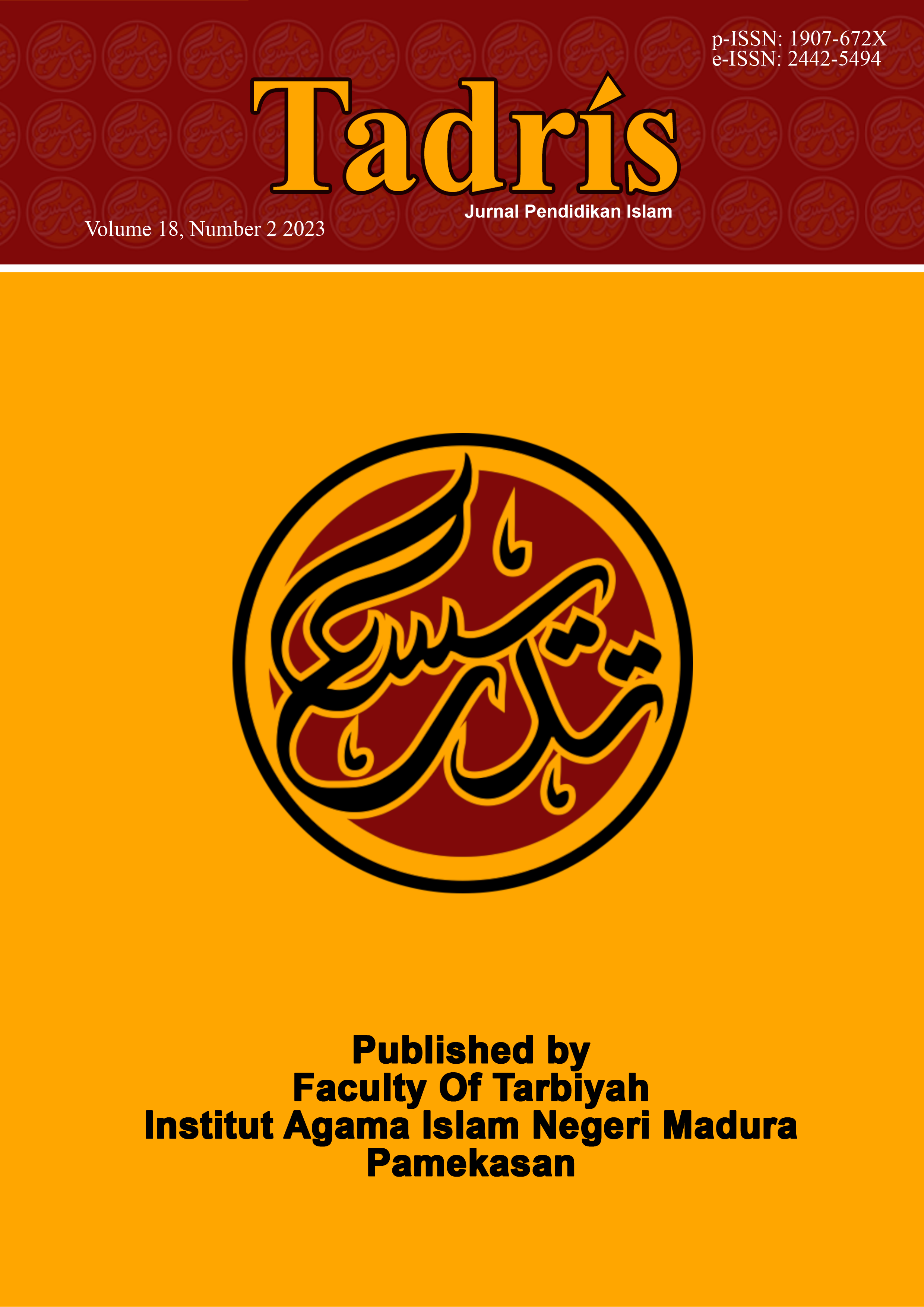SWOT Analysis of Islamic Education Development Strategy for "Muallaf Center Indonesia Peduli" North Sumatera Region
 Abstract views: 167
,
Abstract views: 167
,
 PDF downloads: 121
PDF downloads: 121
Abstract
Muallaf is a person who converts to Islam from another religion. Muallaf needs good Islamic education guidance to be able to understand and practice the teachings of Islam correctly. Muallaf Centre Indonesia Peduli (MCIP) is an organization that works in the field of muallaf guidance, especially in North Sumatra. This article aims to analyze the strategy of Islamic education guidance carried out by MCIP Regional North Sumatra by using the SWOT analysis method (Strengths, Weaknesses, Opportunities, Threats). This article uses a qualitative approach and collects data through observation, interviews, and documentation. The results show that MCIP Regional North Sumatra has several strengths, weaknesses, opportunities, and threats in its guidance strategy. The strengths include having a clear vision and mission, a structured curriculum and learning module, adequate facilities and infrastructure, competent and experienced teachers, cooperation with related parties, and support from the Muslim community. The weaknesses include the lack of professional human resources, the lack of budget and operational funds, the lack of monitoring and evaluation of the process and results of guidance. We hope that this article can become a concrete recommendation for practical implementation of the strategy for developing Islamic education. Meanwhile, MCIP can involve collaboration with related parties, increasing human resources, developing a more responsive curriculum and promotional strategies to increase visibility organization.
Downloads
References
Abdullah. Analisis SWOT Dakwah Di Indonesia: Upaya Merumuskan Peta Dakwah. Miqot XXVI, 2012.
Akbar, Nadzmi. Pembinaan Muallaf (Komparasi Pembinaan Muallaf Oleh Lembaga Swadaya Masyarakat, Pondok Pesantrean Dan Kementerian Agama). Banjarmasin: EL Publisher, 2020.
Al-Qur’an. “Surat Ar-Rum Ayat Ke-30,”
AR, Saftani Ridwan. Konversi Agama Dan Faktor Ketertarikan Terhadap Islam (Studi Kasus Muallaf Yang Memeluk Islam Dalam Acara Dakwah Zakir Naik Di Makassar). Sulesana, 2017.
Baharuddin, Baharuddin. “Asimilasi Sosial Muallaf Tionghoa Di Kecamatan Pontianak Barat Kota Pontianak.” Al-Hikmah 11, no. 1 (2017): 45–59. doi:10.24260/al-hikmah.v11i1.821.
Hakiki, Titian, and Rudi Cahyono. “Komitmen Beragama Pada Muallaf (Studi Kasus Pada Muallaf Usia Dewasa).” Jurnal Psikologi Klinis Dan Kesehatan Mental 4, no. 1 (2015): 20–28. http://journal.unair.ac.id/filerPDF/jpkk8d6c54d882full.pdf.
Hamruni. “PEMBINAAN AGAMA ISLAM DI PESANTREN MUNTASIRUL ULUM MAN YOGYAKARTA III (Tinjauan Psikologi Humanistik-Religius).” Jurnal Pendidikan Agama Islam 13, no. 1 (2016): 19–38. doi:10.14421/jpai.2016.131-02.
HM, Arifin. Pokok-Pokok Tentang Bimbingan Dan Penyuluhan Agama. Jakarta: Bulan Bintang, 1976.
Hubeis, Musa dan Mukhamad Najib. Manajemen Strategi Dalam Pengembangan Daya Saing Organisasi. Jakarta: Elex Media Komputindo, 2008.
Hudaniah, Tri Dayakisni. Psikologi Sosial. Malang: UMM Press, 2009.
Interview with Aditya Vidyan, Chair of North Sumatra Regional MCIP.
J.R, Schermerhorn. Organizational Behaviour. New Jersey: Wiley, 2001.
Jalaluddin. Psikologi Agama, Memahami Perilaku Dengan Mengaplikasikan Prinsi-Prinsip Psikologi. Jakarta: Raja Grafindo Persada, 2012.
M. Ishom El-Saha, Saiful Hadi. SKETSA AL-QUR’AN (Tempat, Tokoh, Nama Dan Istilah Dalam Al-Qur’an). Lista Fariska Putra, 2005.
Muhaimin Abdul, Mujib. Pemikiran Pendidikan Islam. Bandung: Trigenda, 1993.
Noorkamilah. “Peran Mualaf Center Yogyakarta Terhadap Keberfungsian Sosial Mualaf Perspektif Pekerjaan Sosial.” Welfare : Jurnal Imu Kesejahteraan Sosial 10 (2021): 20.
———. “Transformasi Identiftas Muallaf (Studi Di Muallaf Center Yogyakarta),” 2018, 1–83. https://digilib.uin-suka.ac.id/id/eprint/40173/1/Laporan.pdf.
Topan, Hidayat. Peran Muallaf Center Dalam Pembinaan Keagamaan Muallaf Di Yogyakarta. Yogyakarta: Al-Ghazali, 2018.
Wirawan. Konflik Dan Manajemen Konflik: Teori, Aplikasi Dan Penelitian. Jakarta: Salemba, 2010.
Copyright (c) 2023 TADRIS: Jurnal Pendidikan Islam

This work is licensed under a Creative Commons Attribution-NonCommercial 4.0 International License.
The journal operates an Open Access policy under a Creative Commons Non-Commercial 4.0 International license. Authors who publish with this journal agree to the following terms:
- Authors retain copyright and grant the journal right of first publication with the work simultaneously licensed under a
 Commons Attribution-NonCommercial 4.0 International License
Commons Attribution-NonCommercial 4.0 International Licensethat allows others to share — copy and redistribute the material in any medium or format, and adapt — remix, transform, and build upon the material.
- Authors are able to enter into separate, additional contractual arrangements for the non-exclusive distribution of the journal's published version of the work (e.g., post it to an institutional repository or publish it in a book), with an acknowledgement of its initial publication in this journal.
- Authors are permitted and encouraged to post their work online (e.g., in institutional repositories or on their website) prior to and during the submission process, as it can lead to productive exchanges, as well as earlier and greater citation of published work (see The Effect of Open Access).














